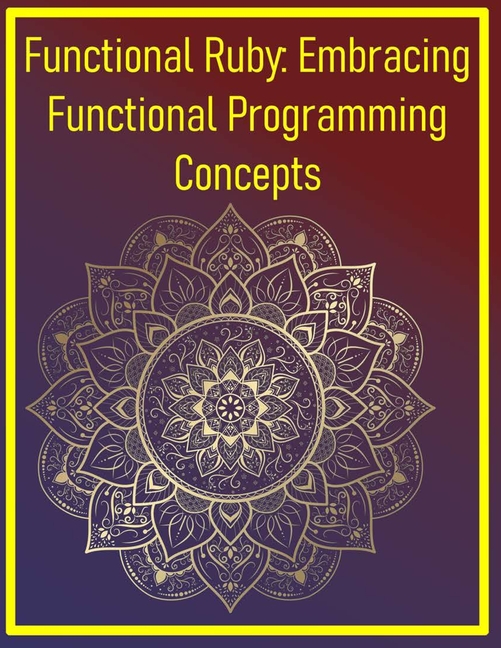Description
✅ Leverage Ruby's Multi-Paradigm Capabilities: Discover how to effectively integrate functional programming concepts into your Ruby applications, enhancing maintainability, testability, and concurrency.
✅ Master Functions as First-Class Citizens: Learn to treat functions as data in Ruby, including passing them as arguments, returning them from other functions, and understanding the role of Method objects and #to_proc.
✅ Utilize Blocks, Procs, and Lambdas: Deeply understand Ruby's powerful callable objects, discerning their differences, appropriate use cases, and how they form the foundation of functional patterns.
✅ Comprehend and Apply Closures: Explore the concept of closures in Ruby, how they capture lexical scope, and their implications for managing private state and avoiding shared mutable state.
✅ Embrace Immutability in Ruby: Learn techniques to work with unchanging data, including avoiding destructive methods, using #dup, #clone, and #freeze, and strategies for achieving deep immutability in collections.
✅ Implement Higher-Order Functions (HOFs): Understand what defines a HOF and how to create functions that accept or return other functions, abstracting behavior and promoting code reuse.
✅ Apply Common Functional Transformations: Master essential HOFs like map, select, reject, find, and reduce (or inject) for effectively transforming, filtering, and aggregating data.
✅ Develop Pure Functions and Manage Side Effects: Grasp the importance of pure functions for predictability and testability, learn to identify common side effects, and refactor impure code while strategically handling necessary impure operations.
✅ Compose and Pipeline Functions for Clarity: Learn to combine smaller, focused functions to build more complex logic through function composition and data pipelining, enhancing readability and maintainability.
✅ Explore Advanced Functional Techniques: Understand concepts like currying and partial application for creating specialized functions, and explore functional approaches to error handling like the Option/Maybe and Either patterns.
✅ Integrate Functional Patterns into Real-World Projects: Discover how to apply common functional patterns such as Strategy and Decorator with functions, implement memoization, and gradually introduce functional concepts into existing Ruby codebases.
✅ Evaluate Performance and Trade-offs: Gain insight into the performance characteristics of functional Ruby code, understanding the trade-offs involved and when to prioritize functional elegance versus imperative speed.
Product Details
- Jul 14, 2025 Pub Date:
- 9798292526414 ISBN-10:
- 9798292526414 ISBN-13:
- English Language




